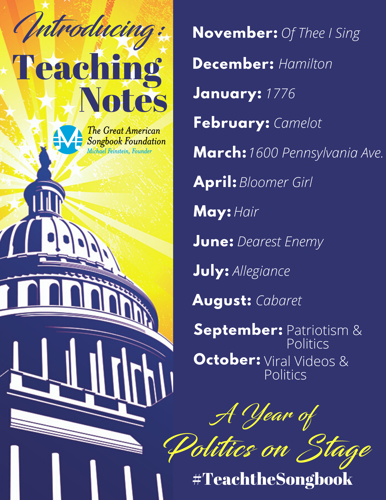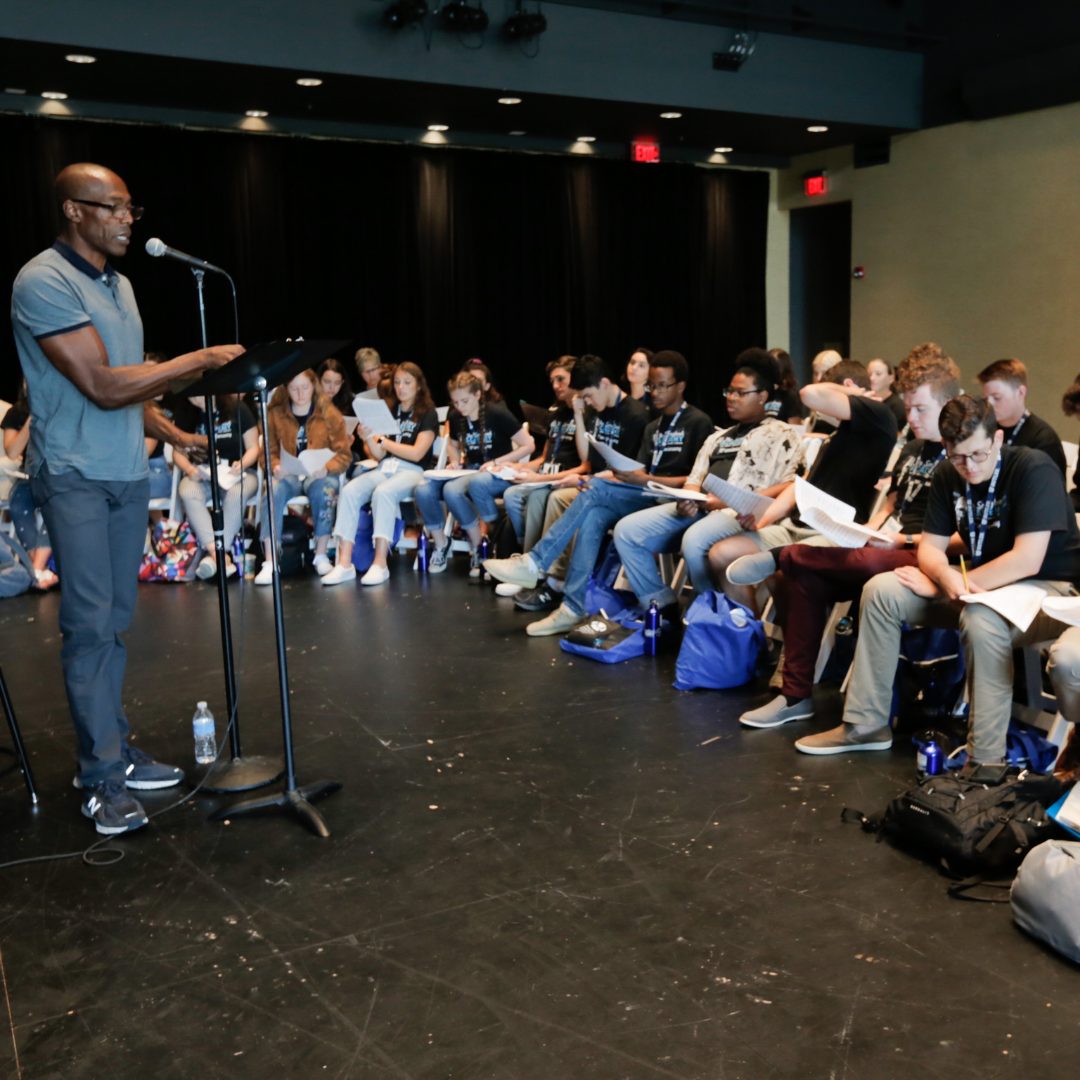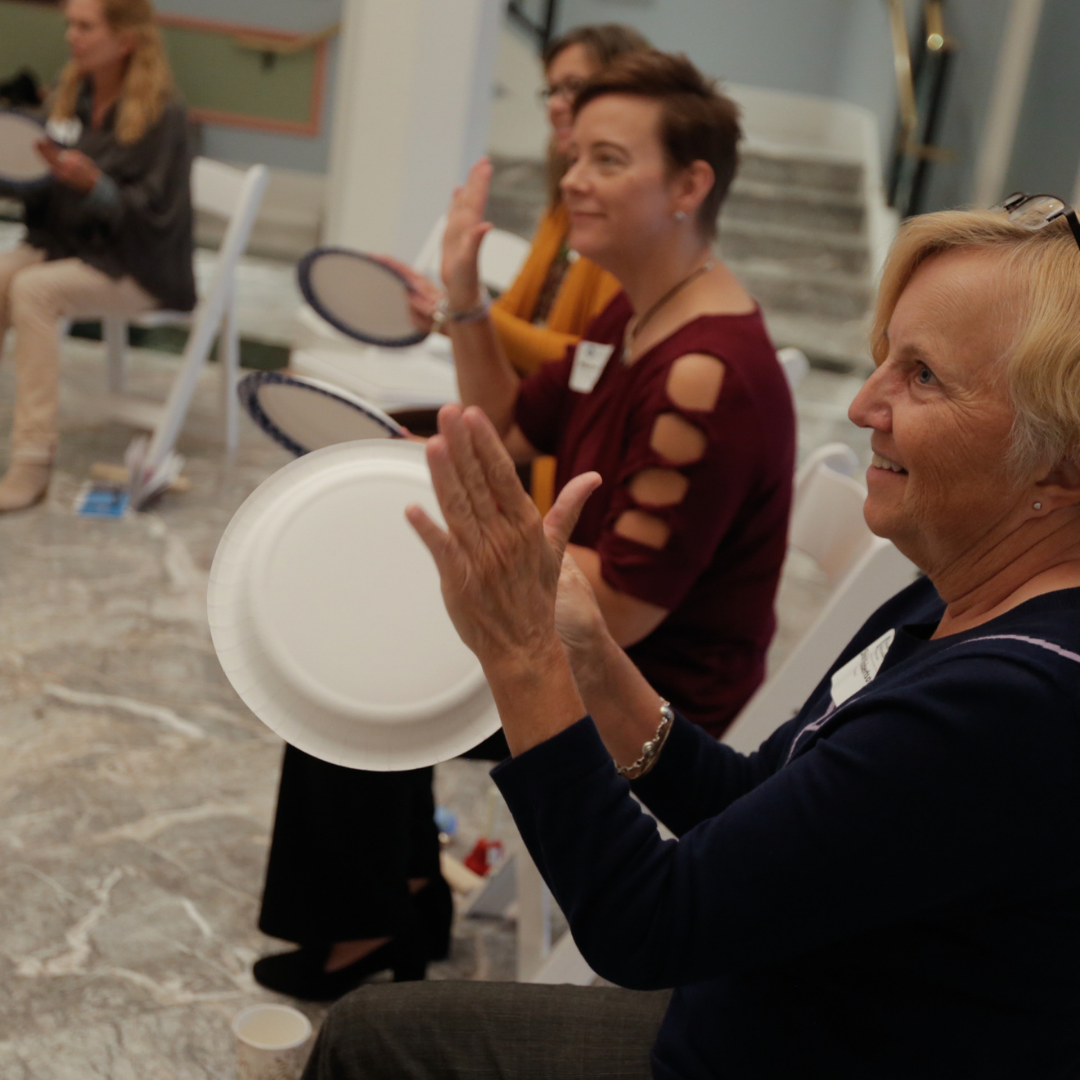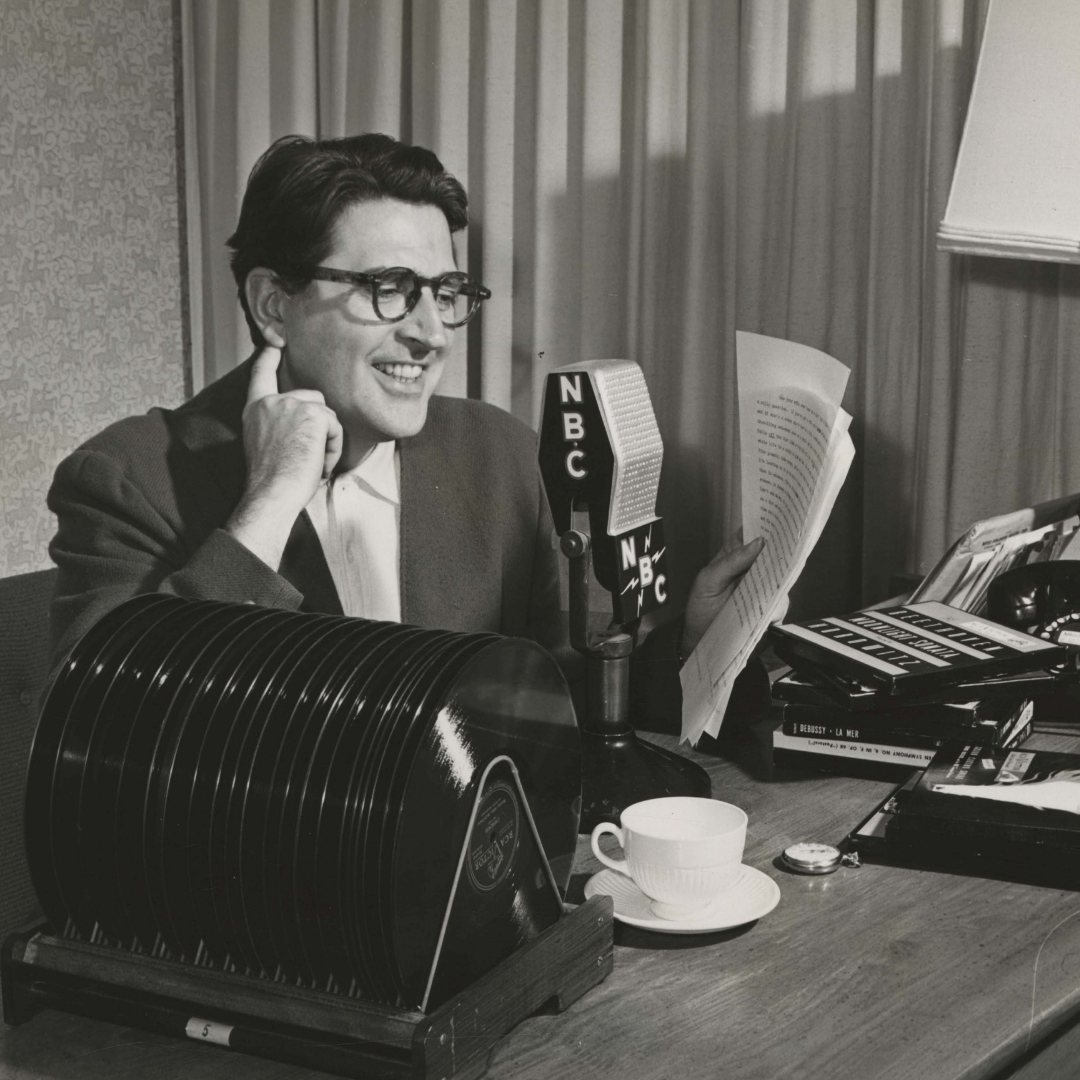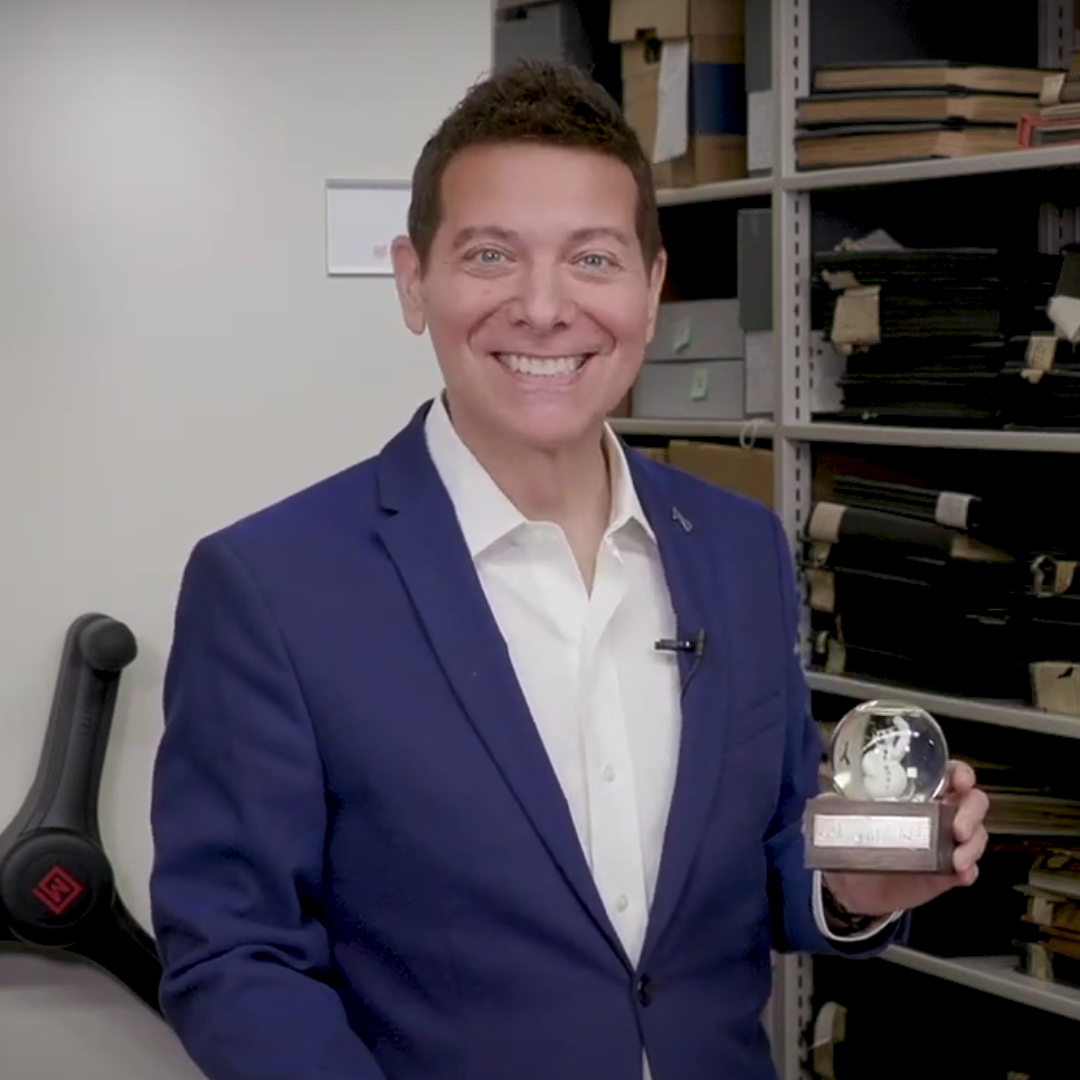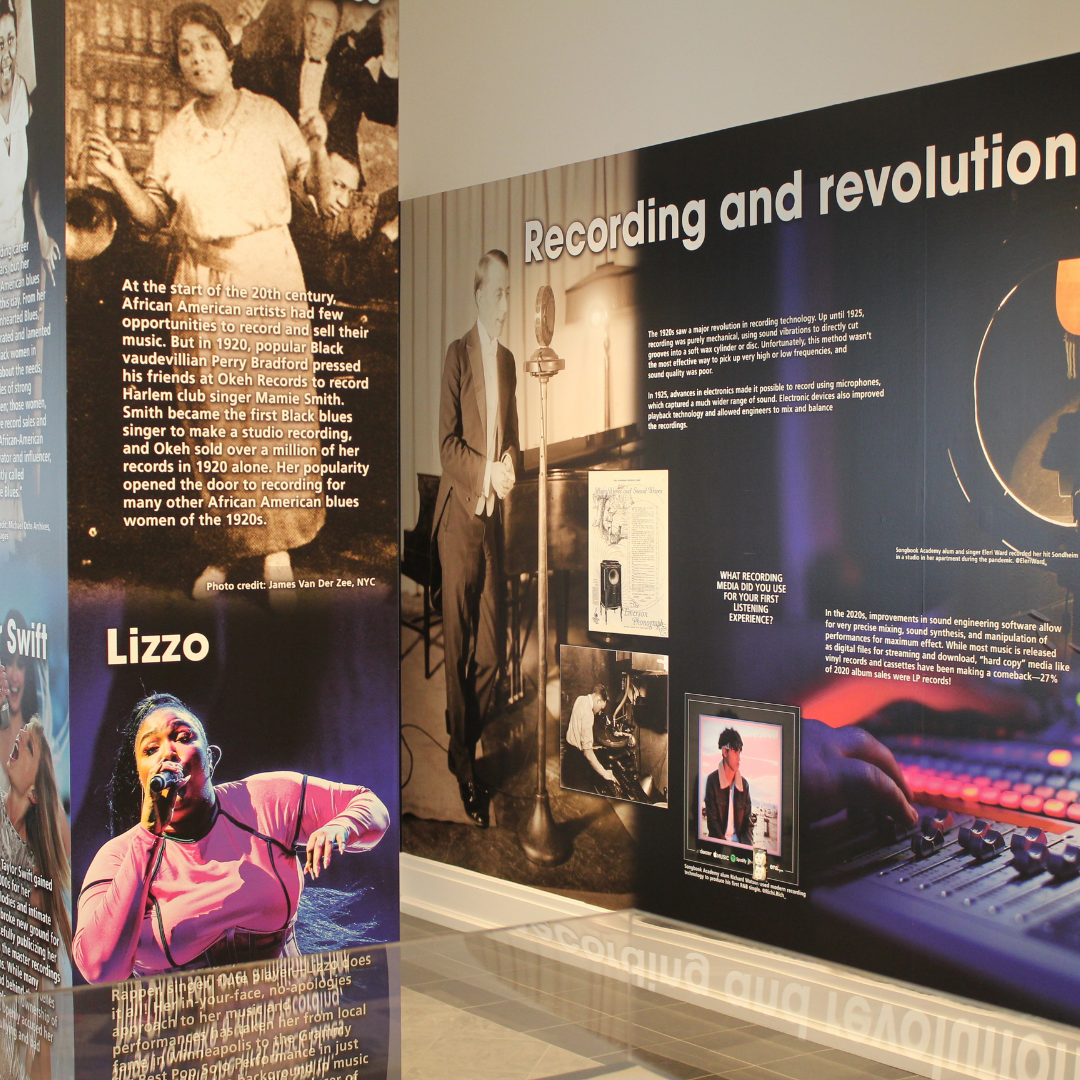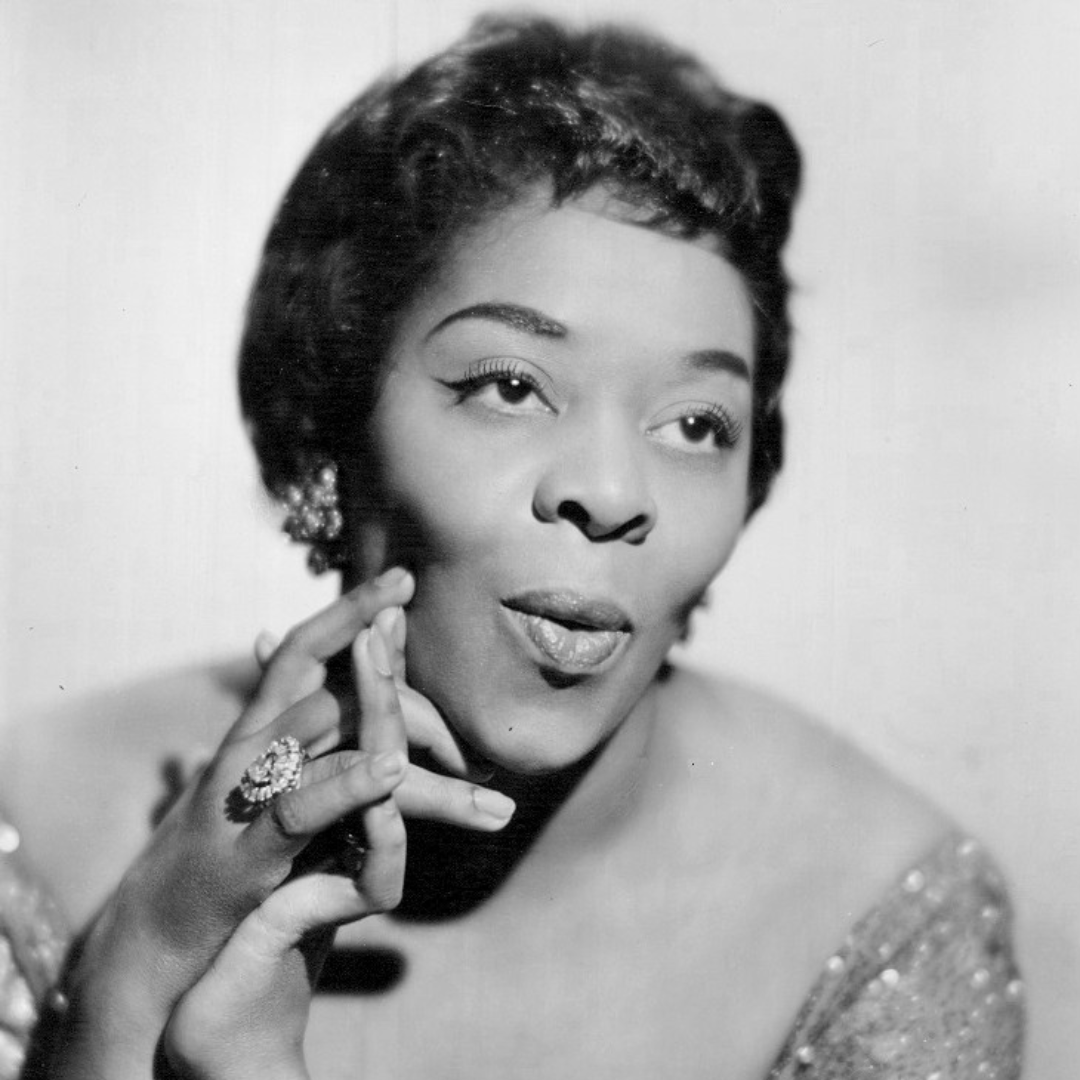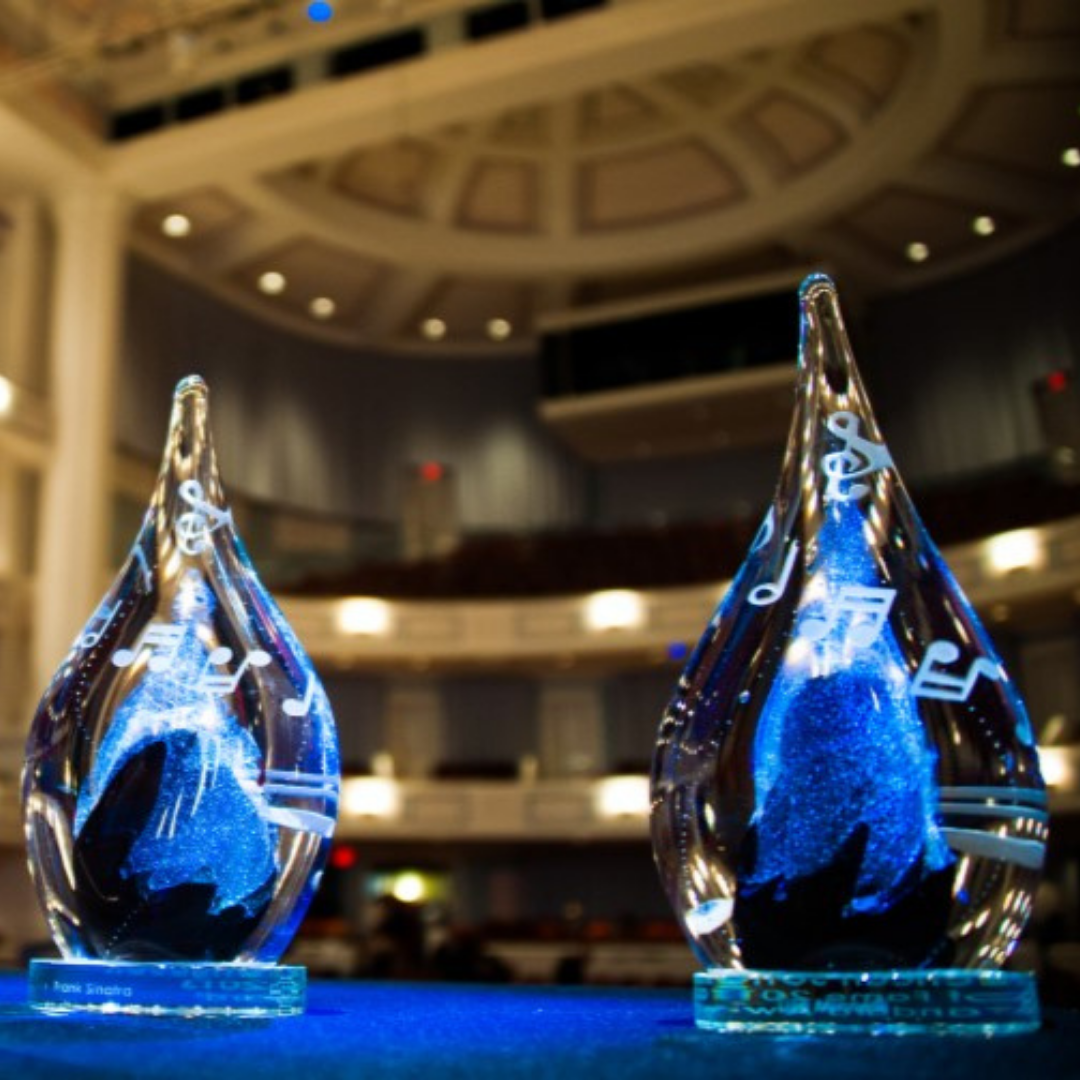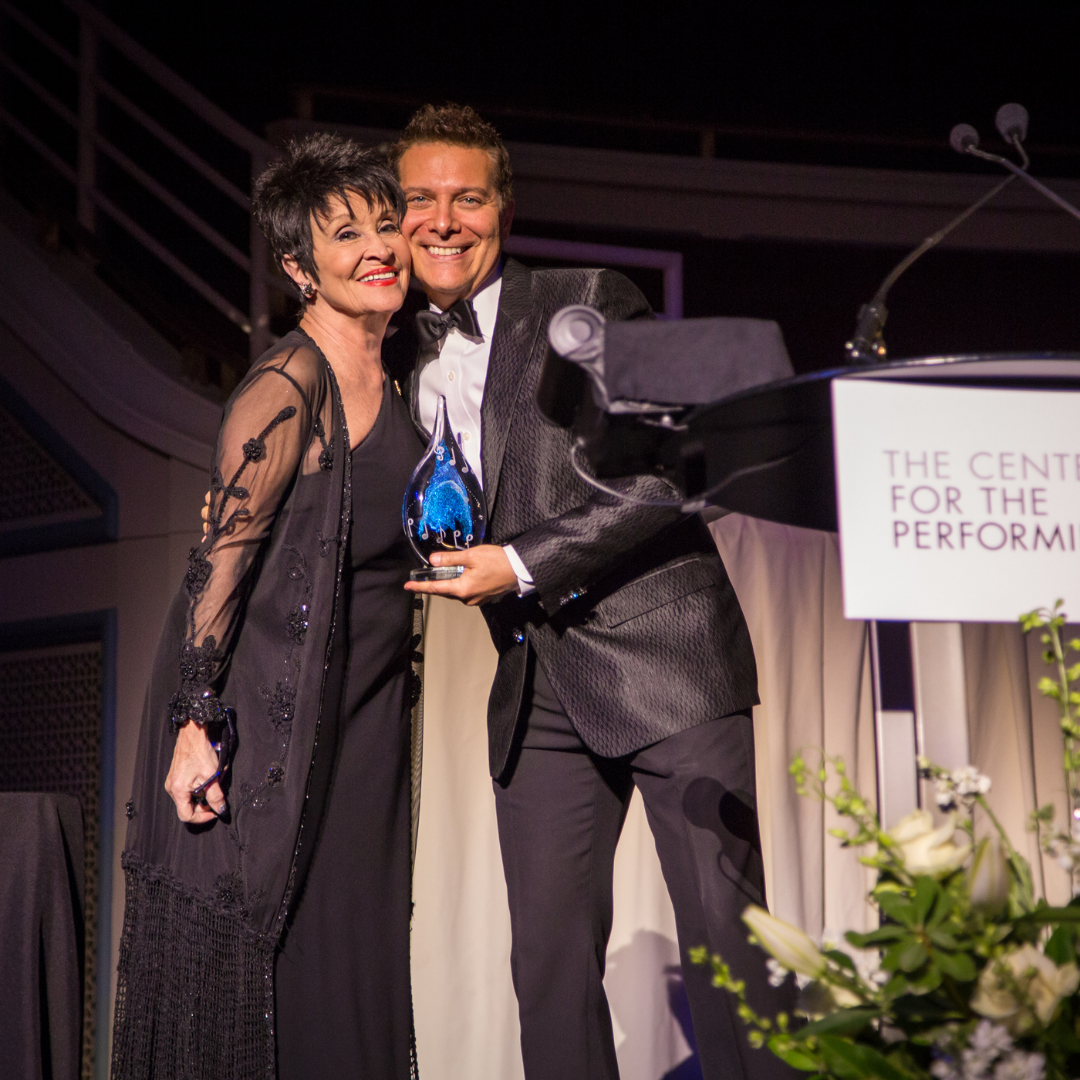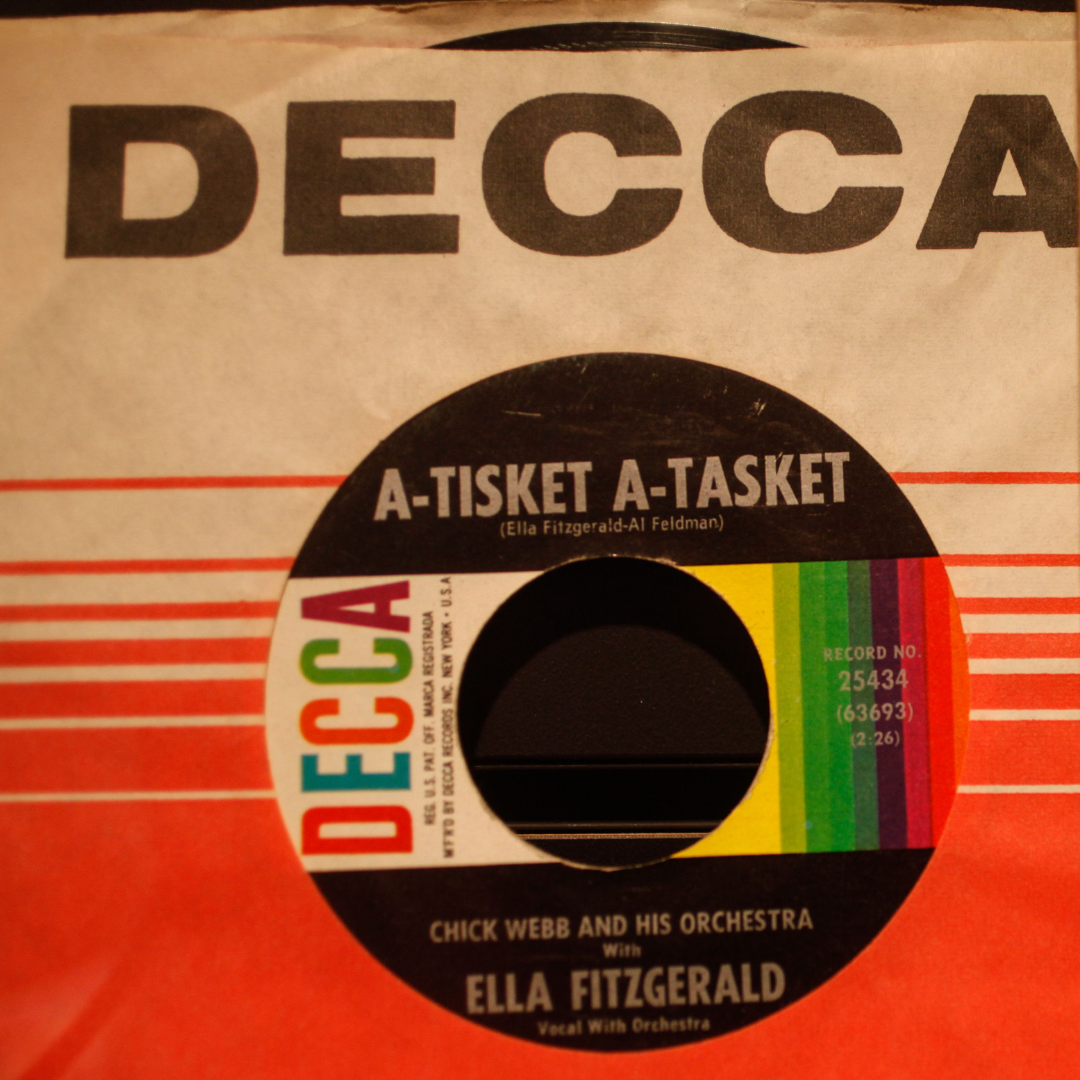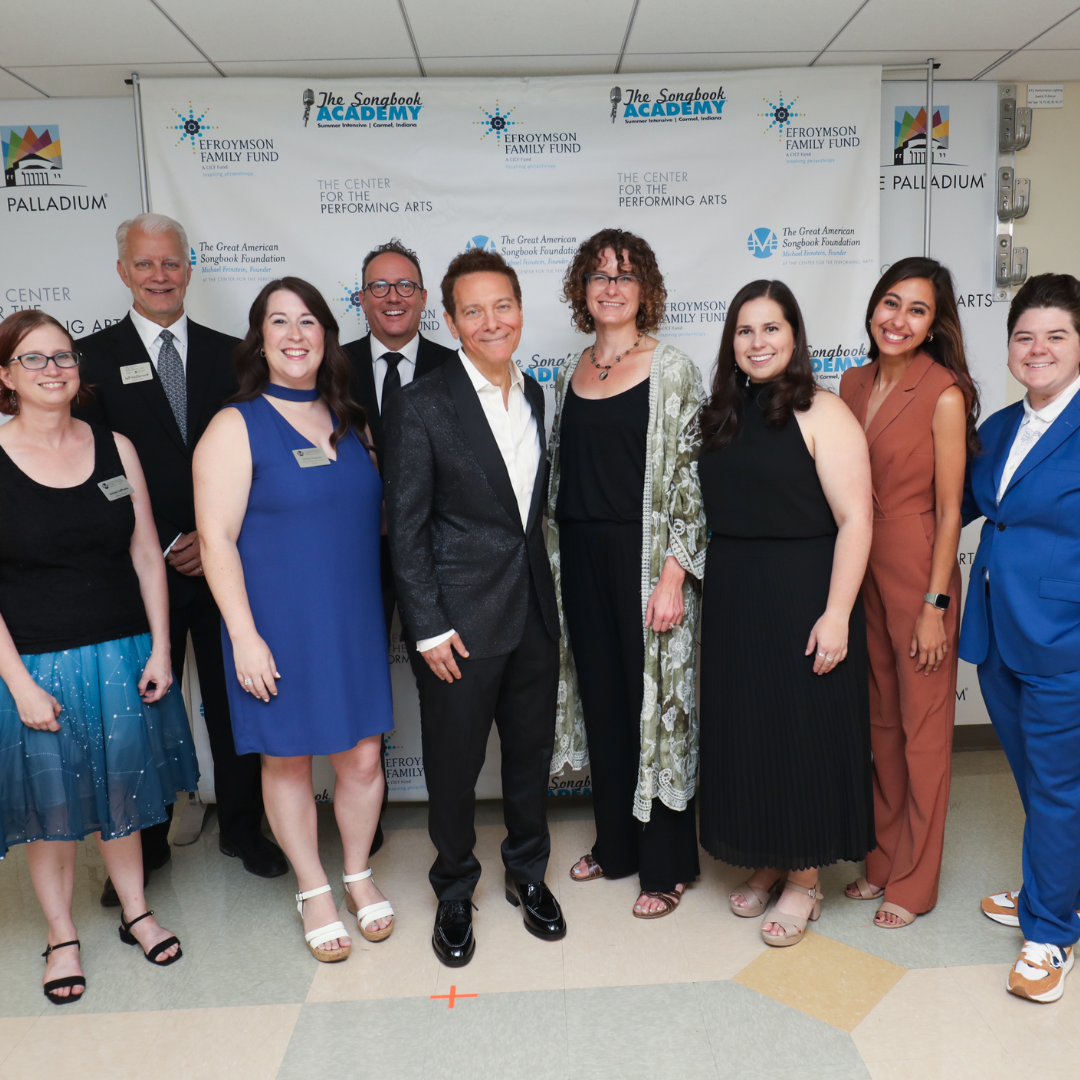Teaching Notes - 1776
January 15, 2020
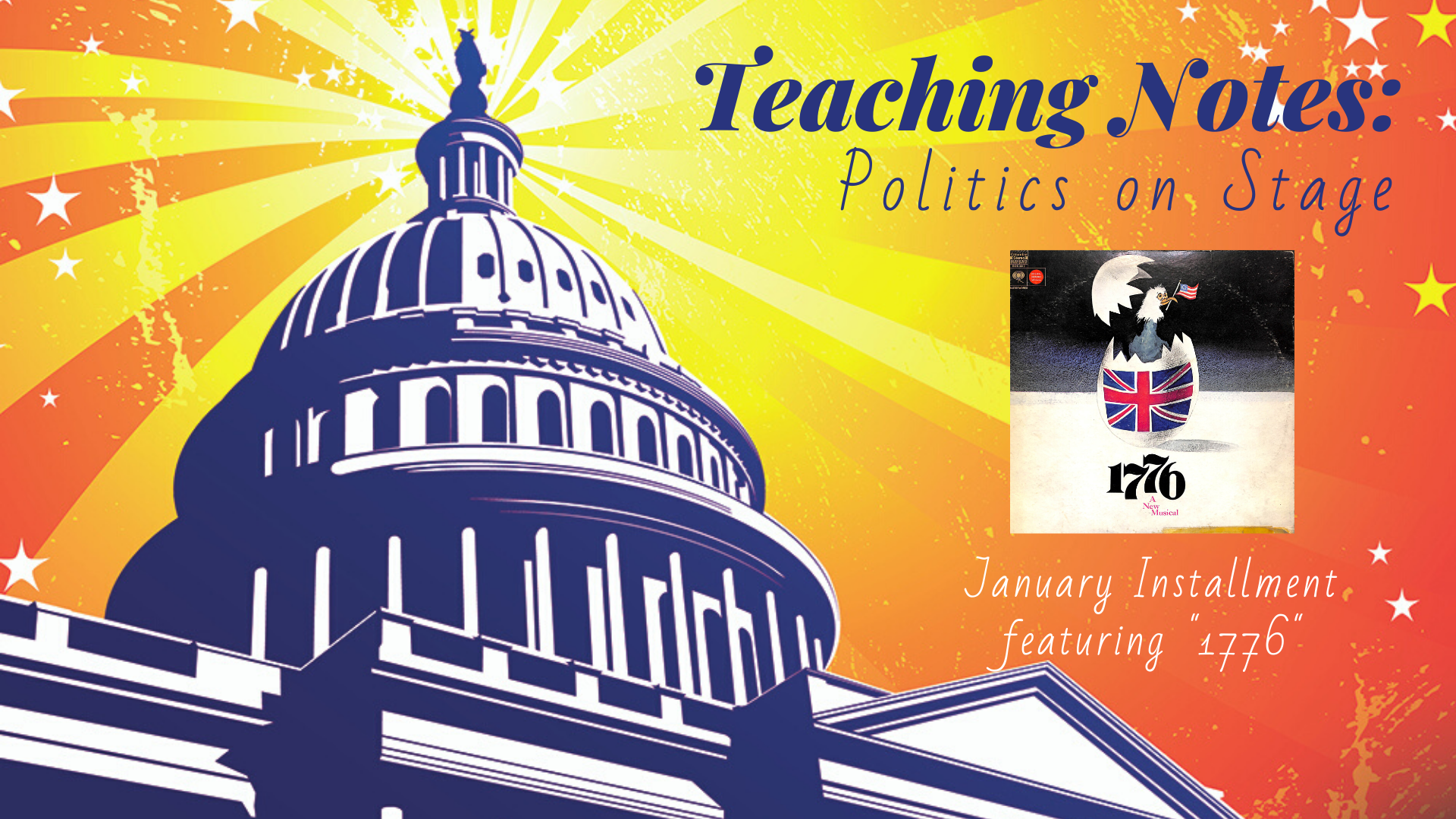
Welcome to Teaching Notes - a blog series written by a teacher to help other teachers #TeachtheSongbook.
A Note from the Author: I can’t imagine life without music. When tunes float by, memories flood in. My foot starts tapping, fingers start snapping, and I get caught up in the emotion of the song. For 28 years, music was always a key component in my classroom. It never failed to grab the attention of my students and made past cultures come alive with connections to daily life.
I’m excited to open up a discussion about the new Songbook exhibit, Of Thee I sing Politics on Stage. It’s a storytelling device where cultural values are seen in the context of music. Including musical theater in your classroom has never been easier. Join me in this forum where you can share your lesson plans and get ideas from others. It’s your point of access for creative ways to engage your students through music. Tell me what works and what’s missing. Let’s start a conversation and get those toes tapping.

Sue Ackley
Contact me at: info@thesongbook.org
This Month's Teaching Notes:
Witness the birth of our nation as 1776 puts faces on the pages of history. The struggle to craft a Declaration of Independence for the fledgling nation comes to life as a compelling drama with wit, wisdom, and a striking score.
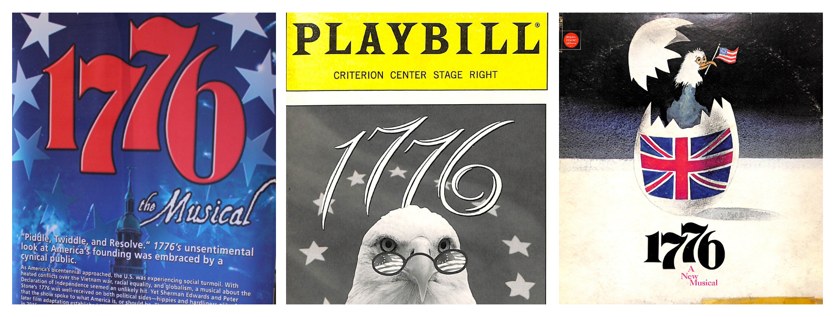
Images from the Songbook Foundation's current exhibit installation titled, Of Thee I Sing: Politics on Stage. Learn more here.
What's it all about?
On a sweltering day in May of 1776, divisive arguments for separation from England abound as John Adams, Ben Franklin, and Thomas Jefferson are among the Founding Fathers eager to write a convincing document for independence. Read full summary here.
What was going on in U.S. politics in 1969?
Richard Nixon was President, the Vietnam War was raging, and the Woodstock hippie era was awash with peace signs, love beads and Nehru jackets.
What topics are covered in the musical?
-
Ethical questions
-
Slavery
-
Citizenship
-
Trustworthiness
-
Revolutionary
-
Declaration of Independence
Start a discussion:
-
How did the musical, 1776, manage to be all things to everyone when it was about American politics?
-
Would you have been a revolutionary in 1776?
-
Do the social challenges of the 1960’s have relevance in the musical 1776 and present day?
-
Why are 1776 and Hamilton considered cultural phenomena of their time?
-
When is rebelling against your government the right thing to do?
What's been said about the musical?
Everyone has an opinion. Here are a few of the responses I found that represent a wide range of perspectives considering the original production, contemporary revivals and everything in between.
- In an article published in The New York Times in 1969, Clive Barnes wrote, “On the face of it, few historical incidents seem more unlikely to spawn a Broadway musical than that solemn moment in the history of mankind, the signing of the Declaration of Independence. Yet 1776... most handsomely demonstrated that people who merely go 'on the face of it' are occasionally outrageously wrong.... [1776] is a most striking, most gripping musical. I recommend it without reservation. It makes even an Englishman's heart beat faster... the characters are most unusually full... for Mr. Stone's book is literate, urbane and, on occasion, very amusing.... William Daniels has given many persuasive performances in the past, but nothing, I think, can have been so effective as his John Adams here. This is a beautiful mixture of pride, ambition, an almost priggish sense of justice and yet – the saving grace of the character – an ironic self-awareness." Read the full article here.
- Music Theatre International summarizes the show, "The seminal event in American history blazes to vivid life in this most unconventional of Broadway hits. 1776 puts a human face on the pages of history as we see the men behind the national icons: proud, frightened, uncertain, irritable, charming, often petty and ultimately noble figures, determined to do the right thing for a fledgling nation.” Read the full summary here.
- In a review of the Ocean State Theatre Company's production in 2016, Kimberly Harper wrote, “'...To call me [an Englishman] without those rights is like calling an ox a bull. He’s thankful for the honor, but he’d much rather have restored what’s rightfully his,' is but one of many slightly off color comebacks that pepper the show’s dialogue. If you’re looking to brush up on your 18th century insults, '1776' will serve as a good primer.” Read the full article here.
- In a review published in The New York Times in 2016, Ben Brantley wrote, “Even in times of tumult, history moves at different paces. To see the hit Broadway musical 'Hamilton' is to experience the American Revolution as a hotheaded, hotfooted affair, sped forward by impatient firebrands who act as fast they talk. But take a look at the same era as it’s portrayed in '1776,' the 1969 musical by Sherman Edwards and Peter Stone about one excruciatingly protracted session of the Continental Congress in the year of its title. As Garry Hynes’s stately Encores! concert production of that show reminds us, the birth of great change often involves a slow and difficult labor, especially when a hidebound institution called Congress is involved.”
Read the full article here.
Most Memorable Way a Founding Father Is Told to "Shut Up"
-
1776 - Ben Franklin to John Adams: “John, why don’t you give it up? Nobody listens to you; you’re obnoxious and disliked.”
-
Hamilton – Aaron Burr to Alexander Hamilton: “Talk less. Smile more.”
Read the full article here.
Broadway Reaction Comparison: 1776 to Hamilton
-
1776 Broadway production - “It makes even an Englishman’s heart beat a little bit faster. This is a musical with style, humanity, wit and passion.” — Clive Barnes
-
Hamilton Broadway production- “Yes, it really is that good.” — Ben Brantley
Read the full article here.
Useful Lesson Plans and Ideas
- The Educated Teacher: 1776
- Teach with the Movies
- "The Constitution at Work" Online Learning Activity
- The Teacher's Guide to 1776 Interactive
- Musicals Can Enhance Collections and Curriculum
- "We Hold These Truths...": Writing the Declaration of Independence, Martha Jefferson: Education, Arts, Letters and Ideas
- Declaration of Independence Timeline Activity
Where can I find out more?
- Videos below
- Synopsis of 1776
- 1776 overview, characters, videos, songs, etc.
- 1776 Lyrics
- The Declaration of Independence of the 13 Colonies
- Meet the Framers of the Constitution
- US Constitution
- The Declaration of Independence: From Rough Draft to Proclamation
- Presenting the Facts: 1776
Up next month: Camelot
How the musical influenced Jackie Kennedy to invent the Camelot legend after President John F. Kennedy’s death.
Happy Teaching! Please share your success in the classroom with us by posting about your lesson plan using the hashtag #TeachtheSongbook and tagging us @songbookfoundation.
Keep an eye out for our other installments coming soon...
